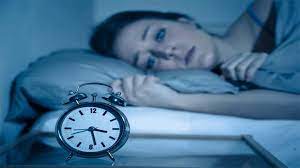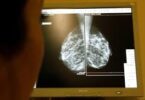Monitoring Desk
SYDNEY: A recent study led by Dr. Alexander Sweetman, a researcher at Flinders University, proposes a promising alternative to traditional sleeping pills for treating insomnia.
Dr. Sweetman suggests that self-guided digital behavioral therapy could offer significant benefits to those suffering from sleep disorders.
The study highlights a concerning lack of psychologists trained in cognitive behavioral therapy for insomnia (CBTi), which limits access to effective treatment options.
Currently, in Australia, many patients with insomnia are prescribed sleeping medications rather than being referred to psychologists for CBTi.
To address this issue, sleep experts from Flinders University and the University of Western Australia have developed a new program called “Bedtime Window.”
This self-guided digital CBTi program has undergone testing and has shown promising results in improving sleep quality, daytime functioning, and overall mental health.
Dr. Sweetman emphasizes the effectiveness of the Bedtime Window program, suggesting it could offer a much-needed alternative to traditional medications for insomnia patients.
He said, “We know that CBTi improves insomnia, mental health, and quality of life, and we want to see more people accessing this treatment because it can reduce the need for sleeping pills or other interventions that may not tackle long-term sleep problems.”
Dr. Alexander Sweetman, a researcher in sleep disorders at Flinders University, sheds light on the significant overlap between obstructive sleep apnea (OSA) and insomnia, with approximately 30–40% of individuals suffering from both conditions. Despite this, many cases of OSA remain undiagnosed and untreated.
Dr. Sweetman explains that individuals experiencing both insomnia and sleep apnea, referred to as COMISA, often endure heightened sleep disturbances, impaired daytime functioning, and compromised mental and physical health compared to those with just one disorder or none at all.
Recent research also indicates a startling 50–70% increased risk of mortality over 10–20 years for those with COMISA.
Recognizing the urgent need for an effective management approach for COMISA, Dr. Sweetman and colleagues developed a self-guided digital cognitive behavioral therapy for insomnia (CBTi) program.
This program, suitable for individuals with insomnia alone or COMISA, demonstrated significant and enduring improvements in insomnia symptoms and related mental health issues over an 18-month trial involving 62 participants.
The program, designed for users to engage with material and brief videos for 20 to 30 minutes weekly, offers a range of treatments including sleep education, stimulus control, sleep restriction, relaxation techniques, cognitive restructuring, and sleep hygiene tips.
It also incorporates features to assess sleepiness and provide personalized suggestions for improving sleep without exacerbating daytime sleepiness.
Dr. Sweetman underscores the importance of further research to validate the efficacy, safety, and acceptance of this digital insomnia therapy, particularly among individuals diagnosed with sleep apnea, before it becomes widely available in healthcare systems.
While demonstrating promise as a medication-free treatment option for sleep disorders, the study underscores the necessity for additional research to ensure the safety and effectiveness of self-guided digital therapy, particularly for individuals with co-occurring sleep apnea.
If proven successful, this approach could offer a valuable addition to healthcare systems for addressing sleep-related issues.







